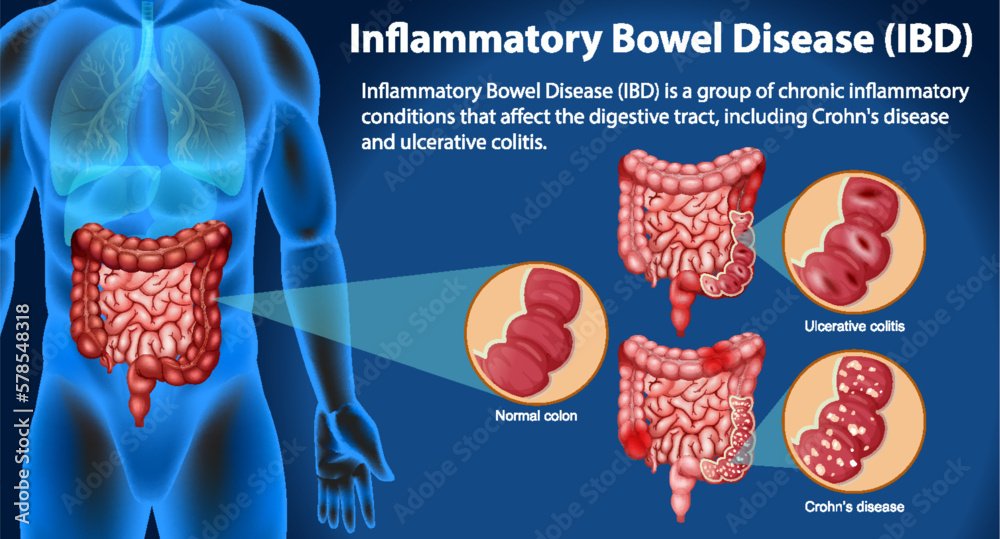A recent Scientific study investigated the association between migraine and the development of inflammatory bowel disease (IBD).
About Inflammatory Bowel Disease (IBD):
- IBD is a term that describes disorders involving long-standing (chronic) inflammation of tissues in the human digestive tract.
- For some people, IBD is only a mild illness. For others, it’s a debilitating condition that can lead to life-threatening complications.
- Types of IBD include:
- Ulcerative colitis: This condition involves inflammation and sores (ulcers) along the lining of your large intestine (colon) and rectum.
- Crohn’s disease.
- This type of IBD is characterised by inflammation of the lining of your digestive tract, which often involves the deeper layers of the digestive tract.
- Crohn’s disease most commonly affects the small intestine. However, it can also affect the large intestine and, uncommonly, the upper gastrointestinal tract.
- A third category, indeterminate colitis IBD, refers to IBD that has features of both Crohn’s disease and ulcerative colitis.
- Causes: The exact cause of IBD is unknown, but IBD is the result of a weakened immune system. Possible causes are:
- The immune system responds incorrectly to environmental triggers, such as viruses or bacteria, which cause inflammation of the gastrointestinal tract.
- There also appears to be a genetic component. Someone with a family history of IBD is more likely to develop this inappropriate immune response.
- Symptoms:
- IBD causes a range of problems in the colon and rectum, but it can also affect other parts of the body.
- Both ulcerative colitis and Crohn’s disease are usually characterised by diarrhoea, rectal bleeding, abdominal pain, fatigue, and weight loss.
- People with IBD may experience flare-ups followed by periods with no symptoms.
- Treatment:
- Although there is no curative treatment for IBD, it’s possible to reduce inflammation and address symptoms with a variety of therapies.
- IBD treatments may include medications, surgery, and a range of diet and lifestyle changes that help reduce inflammation and support the immune system.




